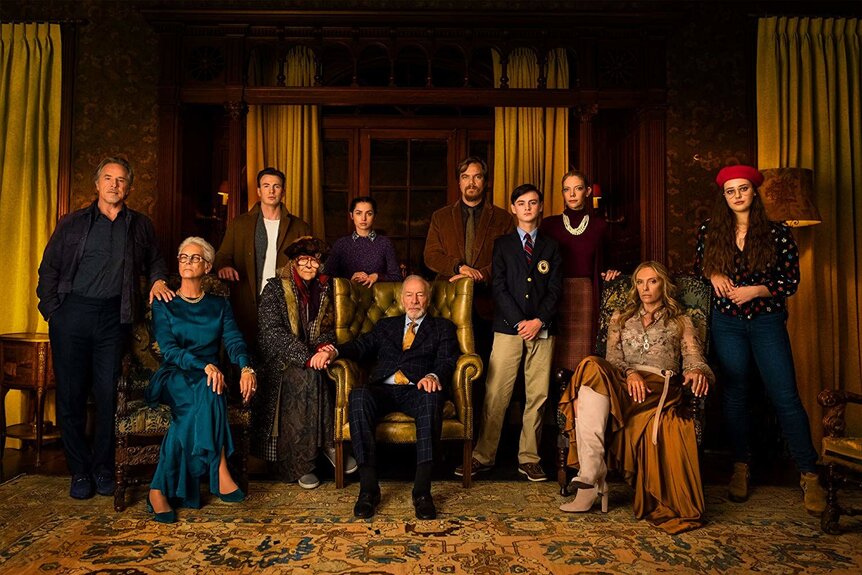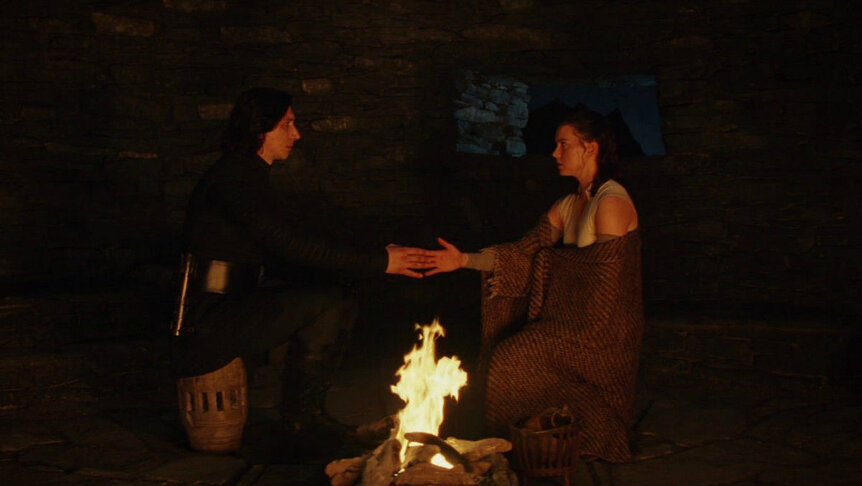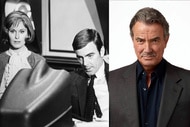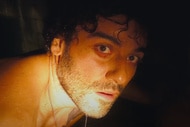Create a free profile to get unlimited access to exclusive videos, sweepstakes, and more!
Why Rian Johnson doesn't want to give genre fans exactly what they think they want
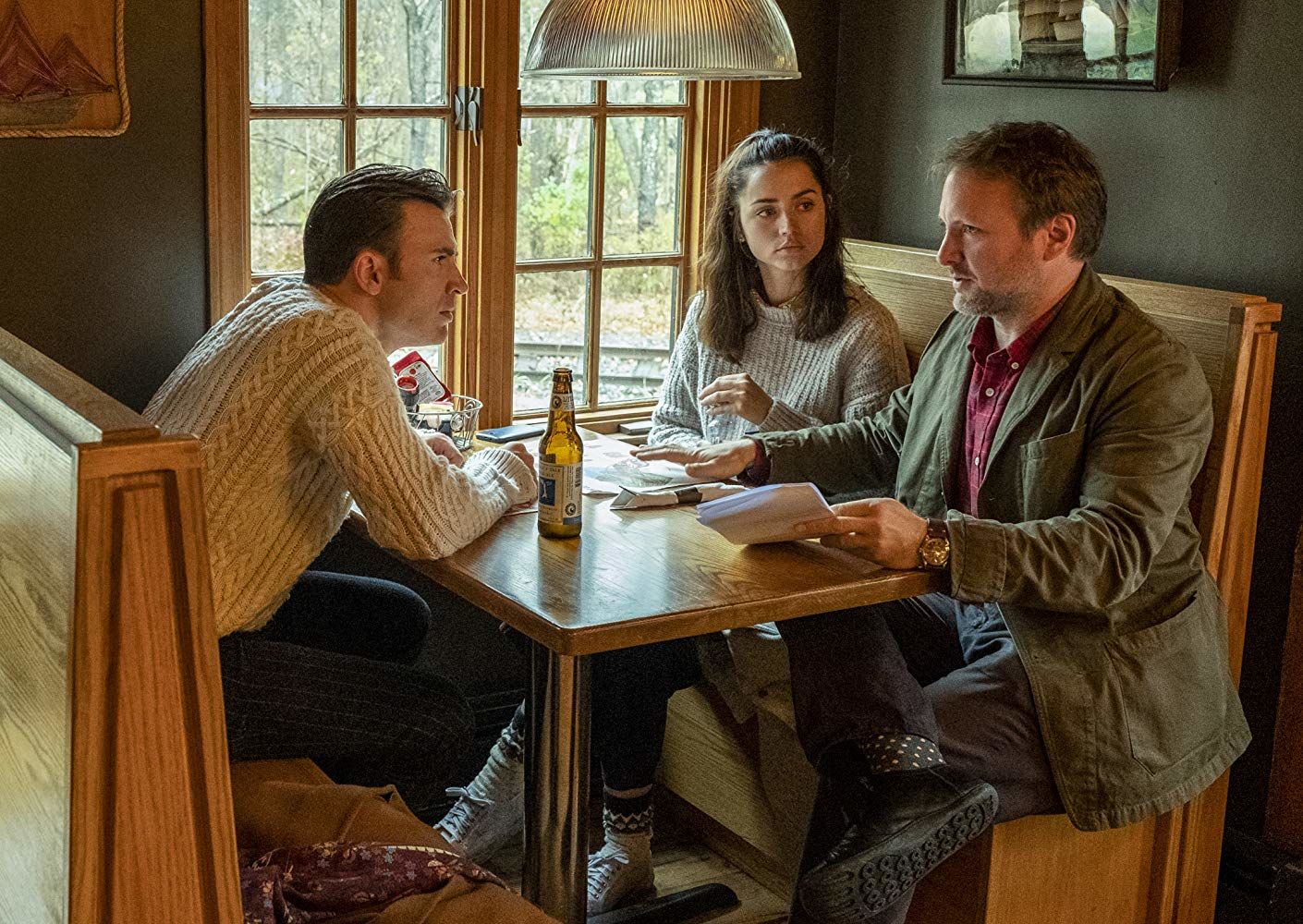
It took Rian Johnson a full decade to make a murder mystery movie ... and then less than an hour to reveal who killed the rich, stately patron at the center of Knives Out, the whodunit that puts a post-modern spin on the genre.
The 45-year-old filmmaker has made a career out of subverting tired tropes and weaponizing audience expectations, first with his indie teen noir Brick, again with his galaxy-shaking Star Wars: The Last Jedi, and now with Knives Out, his take on the stories spun by Agatha Christie and her British brethren. A self-aware exploration of genre and examination of privilege, the New England-set murder mystery takes place largely in the mansion of a famed murder mystery writer named Harlan Thrombey (played by Christopher Plummer), whose shocking (and mysterious, of course) late-night death leaves his snooty, spoiled, and largely useless adult children scrambling.
The would-be heirs and their own families (including Jamie Lee Curtis, Don Johnson, Toni Collette, Michael Shannon, and an against-type Chris Evans) are thrown for a hard loop when it's revealed that their father recently cut them out of his will. The presence of local cops (Lakeith Stanfield and Noah Segan), a wily detective with a Colonel Sanders accent (Daniel Craig, most definitely against type), and Harlan's caretaker Marta (Ana de Armas) only complicates matters, triggering a dizzying spin of lies, disputes, and guileless acts of duplicity.
Johnson spoke with SYFY WIRE about the movie, his subversion of genres, his take on the tête-à-tête between Martin Scorsese and superhero movie fans, and the future of Star Wars.
You shoot a lot of scenes from several different characters' perspectives throughout, which must have made continuity and planning a huge challenge.
The murder mystery has that in common with a time-travel movie, where it exists on several different timelines, and there are others investigating them from different perspectives. I guess the toughest thing for me on set was just keeping the actors oriented. Because besides shooting the same moment over and over, we're never shooting in sequence, so it was just making sure everyone's always clear on what we're doing and why.
As you wrote this, were you constructing scenes that could be dropped in different places depending on how you wanted to present the mystery, or was it very carefully built in a linear way?
It was really meticulous, and my editor, Bob Duscay, who I've worked with since Looper, he and I snapped it together fairly quickly in the edit room. And it actually, of all the movies we've done, we did the least amount of big-picture shuffling on this. It was the closest thing to what's on the screen is pretty much what's on the page.
I spend the first 80 percent of the process working on a single timeline. I write in these little Moleskine notebooks and I need to be able to draw a line across the page and then diagram out the entire plot of the movie on that line. So it's as simple as that. And that means, before I dig into any of the details of it and before I get lost in the weeds of actually typing pages, I've got the entire thing in this very clear form in my head.
Otherwise, I know I would get lost really quickly.
Every character here has a prominent personality and an important role to play. Do you start out with defined characters and then figure out a story around them? Or do you build a plot and then develop characters?
Well, I start with the structure of the story, and then I create the characters based on the needs of the story. If you think about laying out the pattern for a suit and then the characters are the cloth that you cut to fill each of the pieces, basically. Which sounds very clinical, and maybe it is, but that's how I always approach them.
I find very few things funnier than vomit, and here it was not only a joke, but—
Then this is the movie for you.
Puking is such an integral part of the movie! The climax involves vomiting due to lying! I've got to applaud you for making puke not just a joke, but really, really standing up for puke in cinema.
Yes, the puke unions are all backing me in the coming election. I've got them on my side.
The [puking] really just came from a story place. This is a good example, actually, of molding the characters to the needs of the story. Something I learned from Vince Gilligan is to take the characters you care most about and make life as awful as possible for them. Once I realized Marta, the character that does the puking, you're going to care about her and she's going to be in a situation that she can only get out of through lying, taking away her ability to lie seemed like a good dramatic move.
She could've just started crying or have a nosebleed, but you went much bigger.
For a tell with a lie, you'd usually have them blink twice, or they'd touch their nose or something. And, I don't know, it just seemed in keeping with the tone of this, it could be fun to have something a little bigger than that.
You blew up the genre a bit by revealing how Harlan Thrombey died early on, by the second act. Walk me through that decision.
Part of that was wanting to take the pressure off the audience early. The danger of a whodunit narratively is that it will just be clue-gathering leading up to one big surprise at the end, which is kind of boring. And so I wanted really early to say to the audience, "Yeah, maybe there'll be a surprise down the line. Maybe you'll guess it, maybe you won't. That's not why we're here. Here's a character you care about, they're in peril, let's all lean forward and go on this roller coaster ride to see how this plays out."
And, to me, that was almost the starting point for this whole thing, sort of putting the engine of the Hitchcock thriller into the middle of a whodunit, and having that drive us.
A lot of your movies see genre conventions and traditions challenged, from Brick with a teenage noir detective to Star Wars: The Last Jedi, which definitely threw a few firecrackers into the mold. Is subversion in that way a big motivator for you?
Well, I'm never motivated by subversion. To me, my goal is always to get at the heart of the genre. My goal is always to really dig in deep and figure out what is the thing about something that I love, and then to give the audience the purest expression of that possible.
And oftentimes, to get there, especially if it's a genre that audiences are incredibly familiar with ... I don't know, if you just give them exactly what they expect, they then know what box to put that in. They can kind of doze through that, and it might be confirming, but it's not going to give them the actual joy of the first time. For instance, with Brick, the first time I read Dashiell Hammett, I felt like I had been punched in the stomach. Or the first time when you're a kid watching Star Wars, that jolt of "Oh my God, what is this?"
And so, that's the motivation, to get back to the pure heart of what the thing is. It's kind of the opposite of subverting it. I'm trying to really honor it by not just doing genre karaoke, but by truly trying to give the audience ... plugging the audience into the source.
We're in a time where ideas are literally going to be created soon by the algorithm. People are being fed exactly what they want, whether it's Netflix or another streamer. And so as a storyteller who likes to subvert things, is that something that concerns you or something that you have any thoughts about?
Oh, I don't know. Maybe, but I feel like the weeds will always grow up to the concrete. We'll always find ways of making interesting stories.
Well, now we're also in a sort of public debate about cinema and movies — are Marvel and comic book movies cinema? You're a huge cinephile, but you also directed a Star Wars movie and you're making more. So I'm wondering what you think of the conversation?
Oh, I don't know. I mean, first of all, I don't know that it's really a debate that's happening. I feel like it's all kind of silly. I mean, I feel like cinema is something different to every single person. And to me it's fascinating, to read Martin Scorsese writing about what the experience of cinema is to him is fantastic. Even if it doesn't line up with my feelings about it, it doesn't matter. I'm getting a view into his personal ... how he parses movies in the context of modern movies. And that, to me, is incredibly valuable and kind of amazing that we get that.
Obviously, I love big movies, I love little movies. I love weird movies, I love movies that are more mainstream. I cross the gamut. What got me into movies is Star Wars and E.T. and Raiders. So I love the big stuff, if it's good. I don't really think about the idea of what is said to me personally. That's just not the way that I frame things. So this is not something I think about much.
He called Marvel movies something akin to theme parks, which upset some people, but I love theme parks, so it didn't necessarily read as so negative to me.
Yeah, of course, they are. It's obviously an imperfect analogy, but you can see what he was reaching at and you can see what he's describing in terms of his experience of them. And you can see what he was defining in terms of what they lack for him, and to me that's interesting.
Now, you made one Star Wars movie that was part of a trilogy, and now you're going to make your own trilogy, totally separate from the Skywalker Saga. How do you approach that blank canvas?
For me, just as a Star Wars fan, what's Star Wars going forward? That's what's interesting. What is this definition, it's the big existential question of what is Star Wars, and what is the heart of it? How do we get to that heart?
But I think we've seen, already, whether it's with The Mandalorian or with the work that Dave Filoni has done in television, and we've seen how Star Wars can exist outside of the story of the main saga. We've seen kind of the essential elements that can drive it and can make it work. We know it can happen. I'm just excited to ... I don't know, I'm very excited for all Star Wars, just as a fan, I'm excited for where it's going to go next.
Whether it was in Knives Out or The Last Jedi or any of your other movies, what would you say is the hardest scene you've had to shoot?
Well, in Knives Out, specifically, anything where the whole family was together. On one hand, it was the most fun, because you had all those actors together in one space doing their thing, and that was a joy. On the other hand, for me, just learning how to block and cover that big group of actors was a huge technical challenge.
I think we learned something new on every movie, and for me that was a big lesson of this one. That was a big challenge, is when you have 12 actors swarming around each other, in a big, complicated scene, how do you figure out your camera angles so you don't have to shoot a hundred of them in order to cover the whole thing?
You could do close-ups for everyone, but that would make it less dynamic.
Yeah, exactly. You don't want to just TV cover it, where it's just me getting close-up on everyone, and you'd be there for three weeks shooting it. And also all my favorite filmmakers, you look at Michael Curtiz and the way that he stages his actors and stages wide shots where the action plays out. Or Spielberg, he's one of our modern masters of staging in terms of his actors and what he does with the camera. So that's the type of thing that we're trying to get at, we're trying to emulate.
Especially in this movie, there are no real supporting characters — they all have their own storylines, they're all the star of their own show.
What's the old joke, that an actor who just comes up and is the waiter in one scene and gives fresh ground pepper, his friend asks him, "What was the movie about?" He goes, "Well, it's about this waiter who ..."
Knives Out opens in theaters on November 27.
